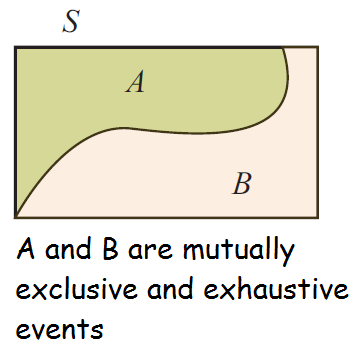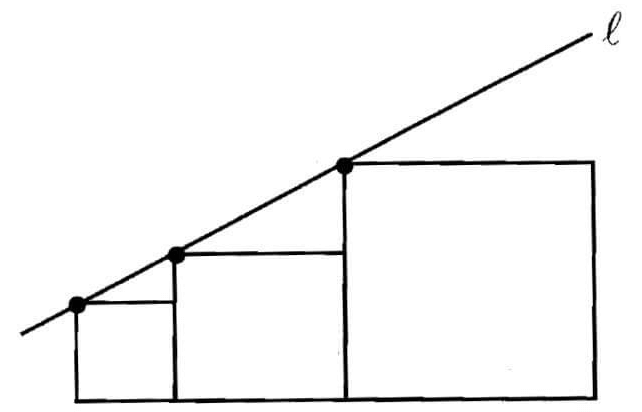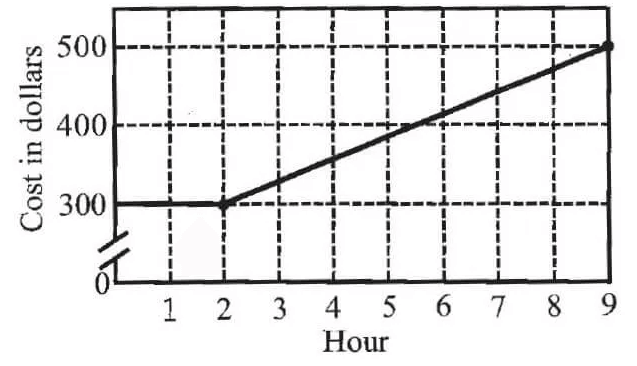HOW TO CHECK THE ASSIGNMENT OF PROBABILITY IS PERMISSIBLE
Here we are going to see some example problems to check the assignment of probability is permissible.
Before going to see examples, let us look into the definition of mutually exclusive and exhaustive events.
A1, A2, A3,.........AK are called mutually exclusive and exhaustive events if,
(i) Ai n Aj ≠ ∅
(ii) A1 U A2 U A3 U......Ak = S

An experiment has the four possible mutually exclusive and exhaustive outcomes A, B, C, and D. Check whether the following assignments of probability are permissible.
Question 1 :
P(A) = 0.15, P(B) = 0.30, P(C) = 0.43, P(D) = 0.12
Solution :
Since the experiment has exactly the three possible mutually exclusive outcomes A, B, C, D they must be exhaustive events.
S = A U B U C U D
So, by axioms of probability
P(A) ≥ 0, P(B) ≥ 0, P(C) ≥ 0 and P(D) ≥ 0
P(A U B U C U D) = P(A) + P(B) + P(C) + P(D) = P(S) = 1
= 0.15 + 0.30 + 0.43 + 0.12
= 1
Probability of an event can be 1.
So, the assignment of probability is permissible.
Question 2 :
P(A) = 0.22, P(B) = 0.38, P(C) = 0.16, P (D) = 0.34
Solution :
So, by axioms of probability
P(A) ≥ 0, P(B) ≥ 0, P(C) ≥ 0 and P(D) ≥ 0
P(A U B U C U D) = P(A) + P(B) + P(C) + P(D) = P(S) = 1
= 0.22 + 0.38 + 0.16 + 0.34
= 1.1
Probability of an even can not be greater than 1.
So, the assignment of probability is not permissible.
Question 3 :
P(A) = 2/5, P(B) = 3/5, P(C) = -1/5, P(D) = 1/5
Solution :
So, by axioms of probability
P(A) ≥ 0, P(B) ≥ 0 but P(C) ≤ 0
Probability of an event can not be negative.
So, the assignment of probability is not permissible.
Question 4 :
P(A) = 1/√3, P(B) = 1 - (1/√3), P(C) = 0
Solution :
So, by axioms of probability
P(A) ≥ 0, P(B) ≥ 0, and P(C) ≥ 0
P(A U B U C) = P(A) + P(B) + P(C) = P(S) = 1
= 1/√3 + [1 - (1/√3)] + 0
= 1
Probability of an event can be 1.
So, the assignment of probability is permissible.
Kindly mail your feedback to v4formath@gmail.com
We always appreciate your feedback.
©All rights reserved. onlinemath4all.com
Recent Articles
-
Digital SAT Math Problems and Solutions (Part - 146)
Apr 18, 25 06:52 AM
Digital SAT Math Problems and Solutions (Part - 146) -
Logarithmic Derivative Problems and Solutions
Apr 16, 25 09:25 PM
Logarithmic Derivative Problems and Solutions -
Digital SAT Math Problems and Solutions (Part - 145)
Apr 16, 25 12:35 PM
Digital SAT Math Problems and Solutions (Part - 145)

